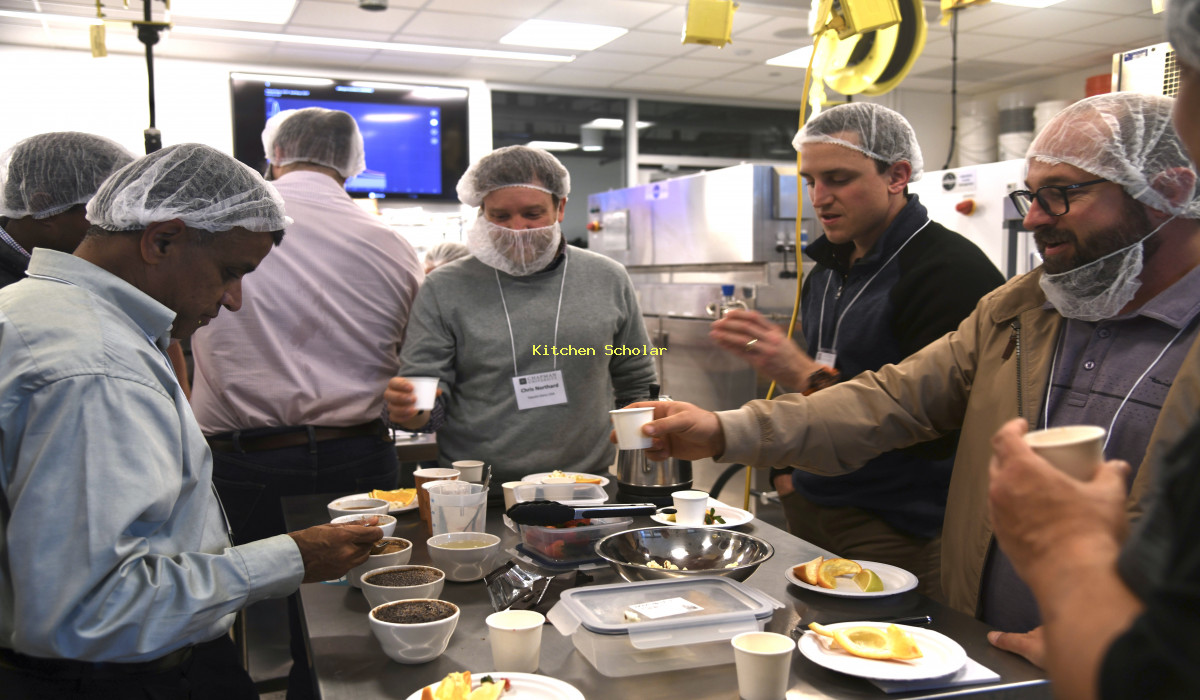Kitchen Helper: 10 Simple Steps to Get the Most Out of Your Cooking Experience. Looking for ways to make your time in the kitchen easier? Look no further! Check out our helpful tips on how to choose the perfect kitchen helper, from organizational tools to handy gadgets. Say goodbye to kitchen chaos and hello to effortless cooking. Follow our must-have guidelines to find your perfect kitchen assistant.
Kitchen Helper: 10 Simple Steps to Get the Most Out of Your Cooking Experience
Kitchen Helper: 10 Simple Steps to Get the Most Out of Your Cooking Experience. kitchen helper from Kitchen Helper: 10 Simple Steps to Get the Most Out of Your Cooking Experience
Kitchen Helper: How to Get the Help You Need
In today’s busy world, the kitchen can often be a place of chaos and stress. Whether you’re a busy parent trying to feed your family, a busy professional trying to balance work and healthy meals, or simply someone who loves to cook but struggles with organization and efficiency, having a kitchen helper can make all the difference. Not only can a kitchen helper save you time and energy, but it can also help make cooking more enjoyable and stress-free. In this article, we’ll explore the benefits of having a kitchen helper and how to find the right one for you.
The Benefits of Having a Kitchen Helper
A kitchen helper can provide a variety of benefits that can enhance your cooking experience and make meal preparation more efficient. Some of the top benefits include:
1. Time Savings: With a kitchen helper by your side, meal prep and cooking can be much faster, as you have an extra set of hands to help with tasks such as chopping vegetables, washing dishes, and setting the table.

2. Stress Reduction: Cooking can be a stressful experience, especially when trying to manage multiple tasks at once. A kitchen helper can help alleviate this stress by taking on some of the workload and allowing you to focus on one task at a time.
3. Organization and Efficiency: A kitchen helper can also help keep your kitchen organized and efficient. They can assist with meal planning, grocery shopping, and keeping the kitchen clean and tidy.
Finding the Right Kitchen Helper for You
Now that we’ve covered the benefits of having a kitchen helper, let’s dive into how you can find the right one for you. Here are some tips to keep in mind:
| Factor | Description | Key Considerations | Tips |
|---|---|---|---|
| Type of Helper | Sous Chef, Prep Cook, Dishwasher, Personal Assistant | Specific kitchen needs and tasks | Define the role clearly based on your specific kitchen requirements |
| Experience Level | Novice, Intermediate, Professional | Skill level, training, certifications | Match the experience level to the complexity of tasks you need help with |
| Specialty Skills | Knife skills, Baking, Pastry, Grilling | Required expertise in specific areas | Identify any specialized tasks that require expert skills |
| Availability | Full-time, Part-time, On-call | Scheduling needs, flexibility | Choose someone with availability that matches your schedule |
| Personality Fit | Teamwork, Communication, Work Ethic | Compatibility with your working style | Ensure the helper’s personality aligns with the kitchen environment and team dynamics |
| Culinary Knowledge | Cuisine expertise, Recipe knowledge, Technique | Specific cuisine or recipe familiarity | Choose someone with knowledge relevant to the type of food you prepare |
| Adaptability | Ability to learn, Handle pressure, Adjust to changes | Fast-paced environments, changing tasks | Look for someone who can easily adapt to new tasks and environments |
| Physical Stamina | Endurance for long hours, Heavy lifting ability | Demands of the kitchen, workload | Consider the physical demands of your kitchen and select someone capable of meeting them |
| Budget | Salary, Hourly rate, Benefits | Affordability, Value for skill level | Balance your budget with the level of expertise and experience required |
| References and Reviews | Previous employment, Recommendations, Reviews | Reliability, Work history | Check references and reviews to ensure reliability and competence |
1. Determine Your Needs: The first step in finding the right kitchen helper is to assess your needs. Do you need someone to help with meal prep and cooking? Or do you need help with tasks such as grocery shopping or kitchen organization? Knowing what you need will help guide your search.
2. Ask for Recommendations: Reach out to friends and family to see if they have any recommendations for a kitchen helper. They may know someone trustworthy and reliable who can help in your kitchen.
3. Utilize Online Platforms: There are many online platforms that connect individuals with kitchen helpers, such as TaskRabbit and Care.com. These platforms allow you to specify your needs and can provide reviews and ratings from previous clients.
4. Conduct Interviews: Once you have potential candidates, conduct interviews to get a better sense of their experience, skills, and personality. This will give you a better understanding of who would be the best fit for your kitchen.
5. Set Expectations: Before hiring your kitchen helper, be sure to set clear expectations in terms of tasks, schedule, and compensation. This will help avoid any miscommunications or conflicts down the line.
Other Ways to Get Help in the Kitchen
While hiring a kitchen helper is a great option for some, there are other ways to get help in the kitchen, such as:
1. Meal Kit Delivery Services: Meal kit delivery services provide pre-measured ingredients and detailed recipes to help make meal preparation much easier.
2. Ready-Made Meals: Many grocery stores and restaurants offer ready-made meals that simply need to be heated up at home. These can be a great option for busy individuals who don’t have time to cook.
3. Cooking Classes: Taking a cooking class can also help improve your skills and make meal preparation more enjoyable. Many classes offer hands-on experience and teach different techniques to help make cooking more efficient.
Kitchen Helper: 10 Simple Steps to Get the Most Out of Your Cooking Experience
Looking for ways to make your time in the kitchen easier? Look no further! Check out our helpful tips on how to choose the perfect kitchen helper, from organizational tools to handy gadgets. Say goodbye to kitchen chaos and hello to effortless cooking. Follow our must-have guidelines to find your perfect kitchen assistant.. Title Kitchen Helper: 10 Simple Steps to Get the Most Out of Your Cooking Experience
Introduction
Are you struggling to keep up with your kitchen tasks? Fret not, because a kitchen helper might just be the solution to your problems. A kitchen helper is an essential tool that can make your cooking experience easier and more enjoyable.
In this article, we’ll guide you on how to get the best kitchen helper for your needs and how to use it effectively in your daily cooking routine. We’ll cover everything from choosing the right type of kitchen helper to maintenance and care tips. So let’s dive into the world of kitchen helpers and make your life in the kitchen much more convenient and efficient.
Choosing the Right Kitchen Helper
Whether you’re an experienced cook or just starting on your culinary journey, having the right kitchen helper can make a significant difference in your cooking experience. Here are some factors to consider when choosing the right kitchen helper for your needs:
1. Type of Kitchen Helper
The first step in choosing the right kitchen helper is determining the type you need. There are various types of kitchen helpers, including:
- Cutting boards
- Kitchen knives
- Blenders
- Mixers
- Cooking utensils
Consider your cooking style and the tasks you frequently perform in the kitchen to decide on the type of kitchen helper that will best suit your needs.
2. Material
Kitchen helpers come in a wide range of materials, such as plastic, wood, stainless steel, and silicone. Each material has its pros and cons, so it’s essential to choose the one that’s most suitable for your cooking needs. For example, wooden cutting boards are gentle on your knives, while stainless steel cooking utensils are more durable and easy to clean.
3. Size and Capacity
Consider the size and capacity of the kitchen helper you’re looking to purchase. Kitchen knives and cooking utensils come in various sizes and shapes, so choose one that feels comfortable to hold and work with. Blenders and mixers also come in different sizes, so determine the amount of food you usually cook to choose the right capacity for your needs.
4. Budget
Kitchen helpers can range from budget-friendly to high-end, so it’s crucial to set a budget and stick to it while choosing the perfect one for your needs. Remember, a higher price tag doesn’t always guarantee better quality, so do your research on the product before making a purchase.
Using Your Kitchen Helper
After choosing the right kitchen helper, it’s crucial to know how to use it effectively in your daily cooking routine. Here are some tips to make the most out of your kitchen helper:
1. Read the Manual
Before using your kitchen helper, make sure to read the manual carefully. This will help you understand how to use it correctly and prevent any accidents or damage to the product.
2. Practice Proper Maintenance
Proper maintenance is essential to ensure your kitchen helper stays in good condition. Wash your tools and utensils thoroughly after each use and store them in a dry and clean place. If using a cutting board, make sure to oil it regularly to prevent it from drying out and cracking.
3. Follow Safety Precautions
Always follow safety precautions when using your kitchen helper. For instance, use a cutting board with a non-slip base to prevent accidents, wear oven mitts when handling hot dishes, and keep your knives sharp to reduce the risk of injury.
4. Experiment with New Techniques
A kitchen helper can open up a world of possibilities in the kitchen. Don’t be afraid to experiment with new techniques and recipes using your kitchen helper. You may discover a new favorite dish or cooking method that will make your meals even more delicious.
Caring for Your Kitchen Helper
Just like any other tool, your kitchen helper also requires proper care to ensure it lasts for a long time. Here are some tips to help you keep your kitchen helper in tip-top shape:
1. Clean Immediately After Use
Cleaning your kitchen helper after each use is essential to prevent food and bacteria build-up, which can damage the product. Use warm, soapy water and a clean sponge to thoroughly wash utensils, cutting boards, and other tools. Avoid using abrasive materials or harsh chemicals, as they can damage the product’s surface.
2. Oil Wooden Products
If you have wooden kitchen helpers, it’s essential to oil them regularly to prevent them from drying out and cracking. Use food-grade mineral oil and a clean cloth to coat the surface of wooden tools and cutting boards.
3. Store Properly
Store your kitchen helper in a dry and clean place to prevent it from getting damaged or dirty. Avoid storing it near heat sources or in direct sunlight, as this can cause the product to deteriorate quickly.
4. Sharpen Knives Regularly
To maintain the sharpness of your knives, it’s essential to sharpen them regularly. You can use a whetstone or a honing rod to sharpen your blades, or take them to a professional for sharpening if you’re not confident in your skills.
In Conclusion
A kitchen helper can be a game-changer in your cooking experience, making it more convenient and enjoyable. Remember to choose the right type, material, size, and capacity for your needs, and follow proper usage and care tips to ensure your kitchen helper lasts for a long time. With the right kitchen helper by your side, you can take on any cooking challenge with ease and confidence. Happy cooking! Kitchen Helper: 10 Simple Steps to Get the Most Out of Your Cooking Experience

Kitchen Helper: 10 Simple Steps to Get the Most Out of Your Cooking Experience
What are the main duties of a kitchen helper?
Answer: A kitchen helper’s main duties include assisting with food preparation, cleaning and maintaining kitchen equipment, and organizing ingredients and supplies.
Is experience required to become a kitchen helper?
Answer: While previous experience can be helpful, it is not always required to become a kitchen helper. Many employers are willing to train individuals who have a strong interest in working in the food industry.
What are the essential skills needed to be a kitchen helper?
Answer: Some essential skills for kitchen helpers include basic understanding of kitchen equipment and food preparation techniques, ability to work in a fast-paced environment, and good communication and teamwork skills.
What are the physical demands of working as a kitchen helper?
Answer: Working as a kitchen helper may involve standing for long periods of time, lifting and carrying heavy objects, and working in warm and sometimes cramped kitchen spaces.
Can a kitchen helper become a chef?
Answer: While it is possible for a kitchen helper to work their way up to a chef position through experience and training, becoming a chef typically requires additional culinary education and experience.
What are some career advancement opportunities for kitchen helpers?
Answer: With experience and training, a kitchen helper may have opportunities for promotion to a line cook, sous chef, or other higher-level positions in the food industry.
What is the difference between a kitchen helper and a dishwasher?
Answer: A kitchen helper typically has a broader range of duties, including food preparation and cleaning tasks, while a dishwasher’s main responsibility is to wash dishes and utensils.
How can a kitchen helper maintain a safe and hygienic work environment?
Answer: Kitchen helpers can maintain a safe and hygienic work environment by following proper food safety and sanitation practices, wearing appropriate protective gear, and regularly cleaning and sanitizing work areas and equipment.
Is a kitchen helper responsible for creating menu items?
Answer: Typically, kitchen helpers are not responsible for creating menu items. However, they may assist with ingredient preparation and plating dishes as directed by a chef or other kitchen staff.
What types of restaurants or establishments typically hire kitchen helpers?
Answer: Kitchen helpers can be hired by a variety of establishments, including restaurants, cafeterias, catering companies, and hotels. They may also work in institutional settings such as hospitals or schools. Kitchen Helper: 10 Simple Steps to Get the Most Out of Your Cooking Experience
